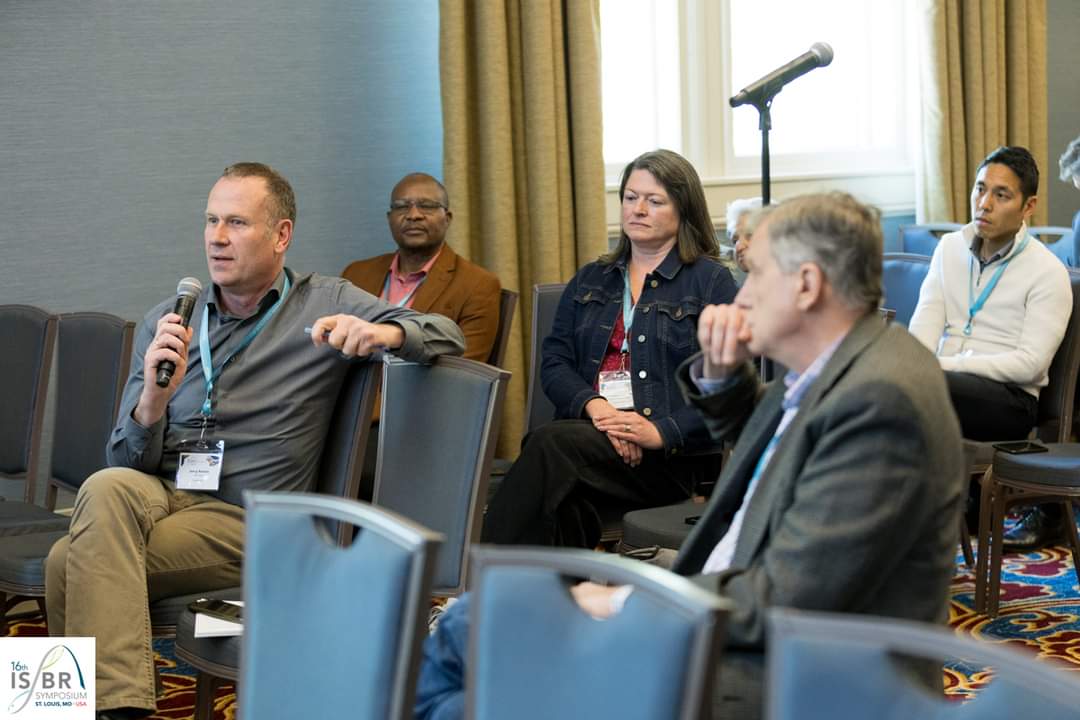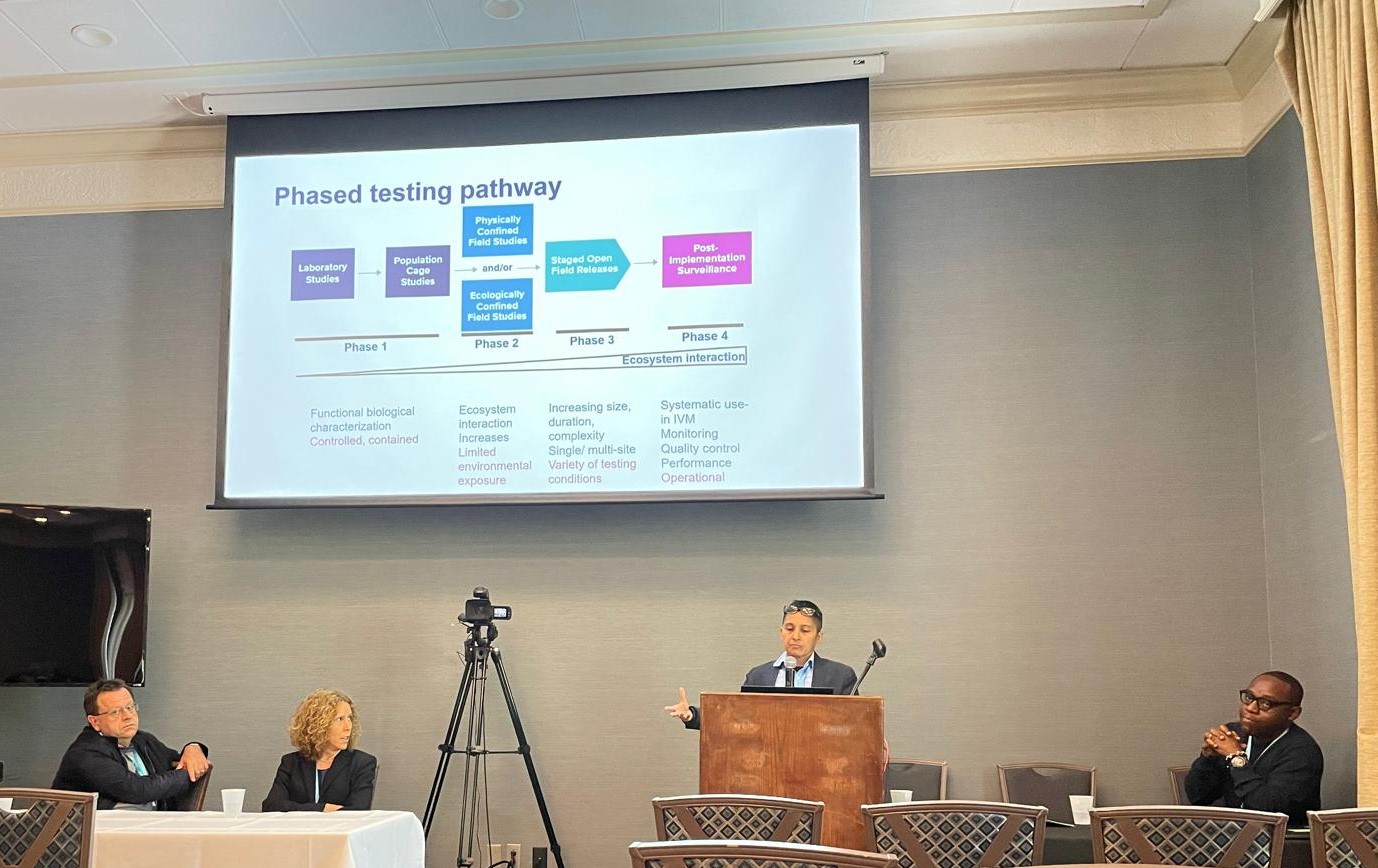By Dr Brinda Dass, Foundation for the National Institutes of Health (FNIH)
After three years of pandemic-imposed absence, the 16th ISBR Symposium took place last week in St Louis, Missouri, from April 30 to May 4. The International Society for Biosafety Research (ISBR) has been organizing international symposia to foster dialogue related to the biosafety of bioengineered organisms since 1990. This year’s meeting consisted of a series of sessions and workshops developed around the theme “Advancing science in support of sustainable bio-innovation” and gathered delegates from more than 45 countries.
As a Scientific Program Manager at the Foundation for the National Institutes of Health (FNIH), currently leading the policy work regarding gene drive research for the GeneConvene Global Collaborative, I attended the meeting last week and participated in a parallel session organized by the Outreach Network for Gene Drive Research. The session centered on new developments in policy and governance of gene drive technologies and their implications for gene drive research.
 Parallel session organized by the Outreach Network for Gene Drive Research at the 16th ISBR Symposium. Photograph: ISBR
Parallel session organized by the Outreach Network for Gene Drive Research at the 16th ISBR Symposium. Photograph: ISBR
Gene drive technologies offer significant potential for addressing challenges related to public health, such as the control of mosquitoes that transmit disease. In recognition of this potential, interest in gene drive research has been growing rapidly. The global policy and governance environment in which this research takes place is also evolving, with guidance and position statements on how gene drive research can be conducted safely and responsibly having been published by several major international organizations, including the World Health Organization (WHO).
My presentation focused on the second edition of the WHO’s Guidance framework for testing genetically modified mosquitoes, and its implications for gene drive research. Published in 2021 and developed in partnership with the WHO-TDR (the WHO Special Programme for Research and Training in Tropical Diseases) and FNIH, the Framework was updated to reflect the advances and knowledge accrued in the intervening period. Similar to the first edition published in 2014, the updated Framework describes a phased pathway for research and development of genetically modified mosquitoes and provides considerations for ensuring the safety and efficacy of products at each phase. It also describes regulatory and ethical paradigms that could apply to these types of products.
My presentation provided an overview of the efficacy, safety, regulatory, and ethical considerations at each step of the phased testing pathway as outlined in the updated Framework and their implications for developers, regulators, and publics.
 Dr Brinda Dass presenting at the parallel session organized by the Outreach Network for Gene Drive Research at the 16th ISBR Symposium
Dr Brinda Dass presenting at the parallel session organized by the Outreach Network for Gene Drive Research at the 16th ISBR Symposium
The parallel session featured speakers from various institutions working on gene drive research, including the Ifakara Health Institute, The University of California Malaria Initiative (UCMI) and the Genetic Biocontrol of Invasive Rodents program (GBIRd). Participants were provided with information that spanned the arc of current gene drive research and development activities including potential applications of the technology, activities in areas considering their use, local considerations and stakeholder engagement, and global policy and governance.
Recent posts
